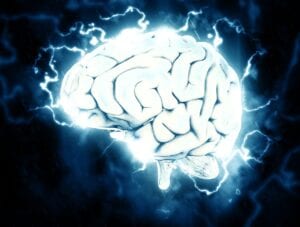Atypical Teratoid Rhabdoid Tumor (AT/RT)
What is an atypical teratoid rhabdoid tumor?
An atypical teratoid/rhabdoid tumor (AT/RT) is a fast-growing tumor of the central nervous system (CNS) that forms in the brain and spinal cord. It most commonly impacts children who are three years old and younger, although anyone can be affected by these tumors. It is an aggressive cancer with a poor survival rate.
What are the symptoms of an atypical teratoid rhabdoid tumor?
Symptoms of this cancer depend on where in the CNS the tumor has formed. These symptoms can change or progress quickly due to the fast-growing nature of AT/RTs. Possible symptoms include:
- Nausea
- Vomiting
- Morning headache
- Headaches that disappear after vomiting are also common
- Loss of balance and coordination
- Trouble walking
- Increasing head size
- This symptom is only present in infants
What causes an atypical teratoid rhabdoid tumor?
The majority of these tumors are caused by a sporadic mutation of the INI1 gene. In other cases, the SMARCA4 and SMARCB1 genes are mutated, which considerably raises one’s odds of developing this tumor. These mutations can be inherited or sporadic.
How is an atypical teratoid rhabdoid tumor diagnosed?
Doctors will begin with a physical examination and evaluation of a patient’s health history. This will be followed by various tests, such as a lumbar puncture, biopsy, MRI, immunohistochemistry, and neurological exam. Genetic testing of the SMARCB1, INI1, and SMARCA4 genes is also recommended to confirm or better understand a diagnosis. Ultrasounds may also be utilized to best plan treatment.
What are the treatments for an atypical teratoid rhabdoid tumor?
Children and adults are treated differently for this cancer, so ensure that a patient’s doctor specializes in either childhood or adulthood cancer.
Options include surgery to remove the tumor, chemotherapy, high-dose chemotherapy paired with a stem cell transplant, and radiation therapy. Additionally, targeted therapy is currently being evaluated as a treatment for AT/RTs. In fact, clinical trials are an option for treatment as well.
Where can I find out more about atypical teratoid rhabdoid tumors?
Atypical Teratoid Rhabdoid Tumor Articles




Paxalisib Earns Orphan Drug Designation for Atypical Teratoid Rhabdoid Tumors

A Mother’s Recollection of a UCSF Medical Center Cancer Ward and its Compassionate Nurses







